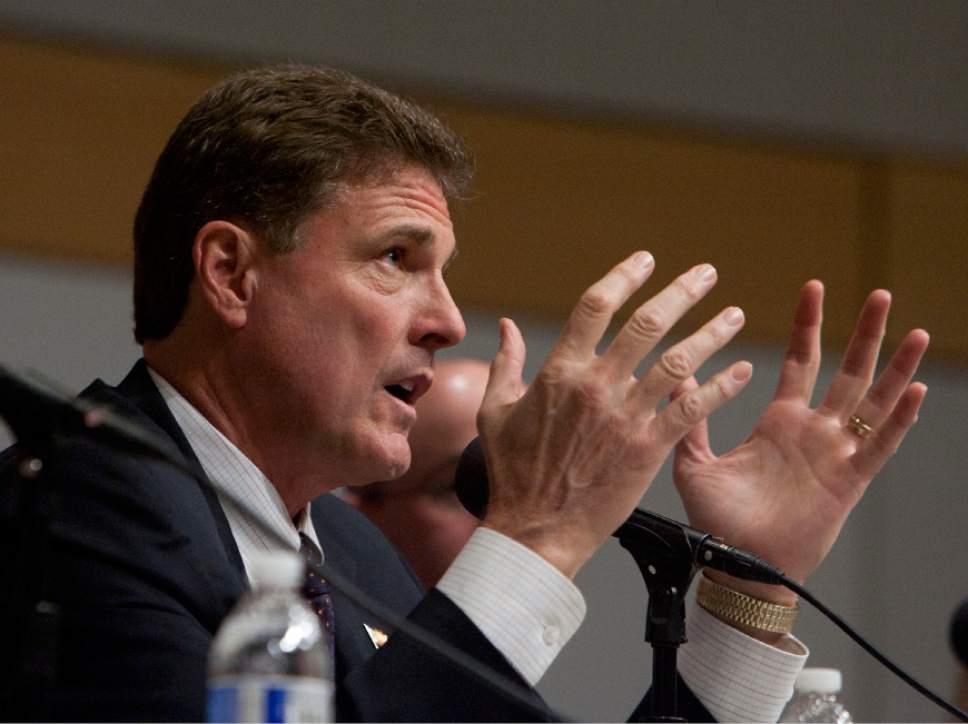This is an archived article that was published on sltrib.com in 2017, and information in the article may be outdated. It is provided only for personal research purposes and may not be reprinted.
As Kalee Allred's husband was flown by helicopter to Intermountain Hospital after an accident, she called her insurance company to make sure he was properly covered.
She found out that that hospital was not in her insurance network. But the insurance company told her not to worry: for emergencies, federal law requires it to pay the hospital the same amount it pays to its in-network hospitals.
A few weeks later, Allred still received a $38,000 bill.
"I called them thinking it was a mistake," she told lawmakers Tuesday. "They said no." She found the hospital and doctors may charge her the difference between what her insurance company is required to pay under federal law, and what the hospital and doctors want.
It's actually called "surprise billing," or "balance billing." And the House Business and Labor Committee voted unanimously Tuesday to pass HB395, to limit it. Several states ban the practice entirely. The bill now goes to the full House for consideration.
The bill pits insurance companies against doctors. The physicians say the bill gives insurance companies too much control. Insurance companies — and some lawmakers — say doctor groups have been unwilling to seriously negotiate, and simply want to charge what they do now.
The bill's sponsor, Rep. Jim Dunnigan, R-Taylorsville, who owns an insurance agency, said his bill would require insurance companies to pay out-of-network emergency providers the median of what they pay to their own in-network doctors — plus 5 percent. It caps the difference that patients may need to pay at $5,000.
Doctors said the bill's wording could allow insurance companies to pay them much less than what is provided by networks with which they contract.
"I don't think it's coincidence that every insurance company is in support of this bill, and physicians are not. That doesn't show a very good compromise," said Michael Beck, president of the Utah Society of Anesthesiologists.
He added that Utah medicine is ranked high in quality, and low in cost per patient — which he said suggests that doctors try to be fair.
But Rep. Dixon Pitcher, R-Ogden, who has been working with Dunnigan on the legislation, said doctors have not negotiated in good faith and constantly stalled. "They want their full amount," he said.
Dunnigan estimated his bill has been through 22 different drafts seeking to find a workable compromise, and he expects more.
"I'll just say frankly that the different parties don't trust each other. They just don't," he said. "They want to make sure that one is not advantaged or disadvantaged."
He also said insurance companies are not happy because it would require them to pay 5 percent more than they do now.
Dunnigan said he's worked on a solution for three years, and the time has come to push the bill forward. "It's a problem, and it needs to be fixed."



